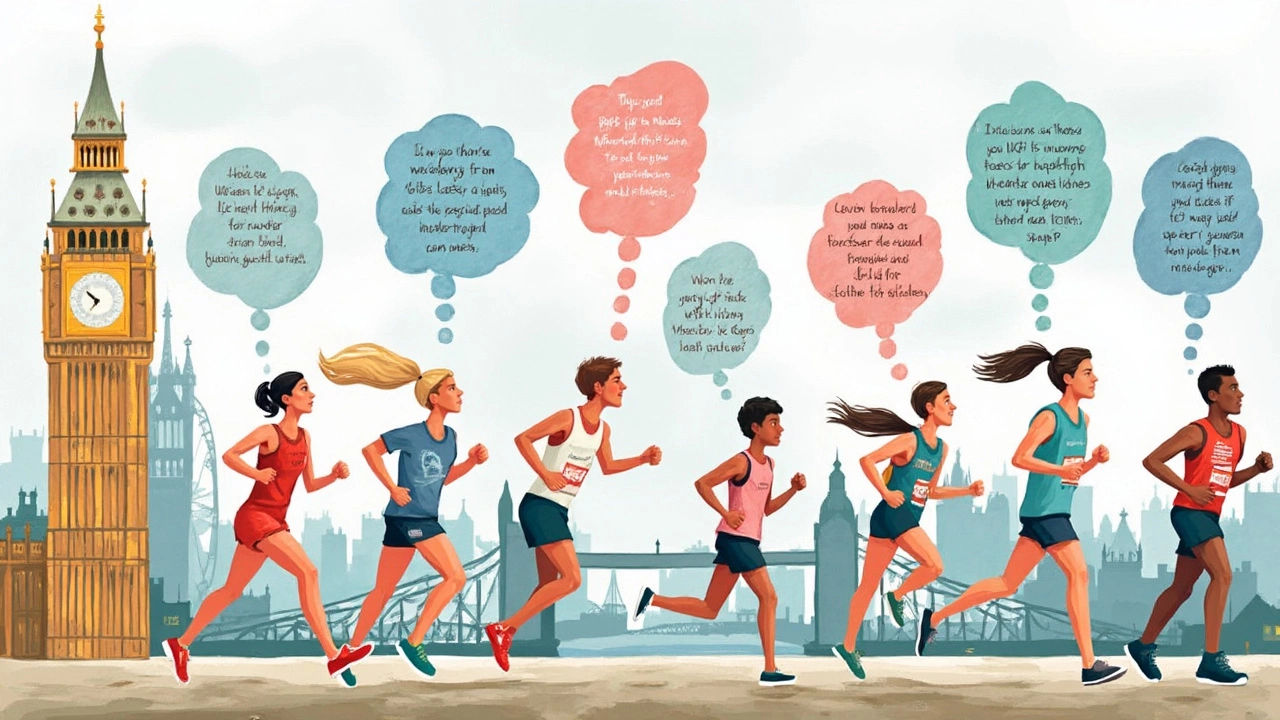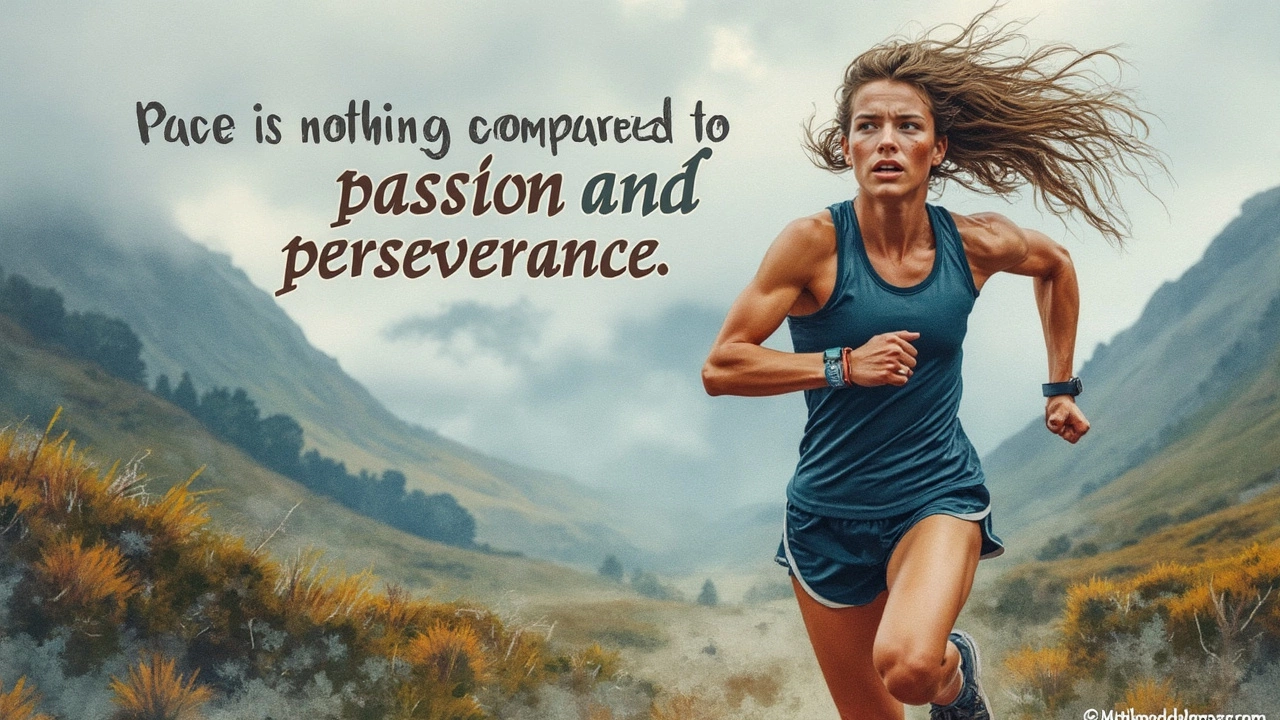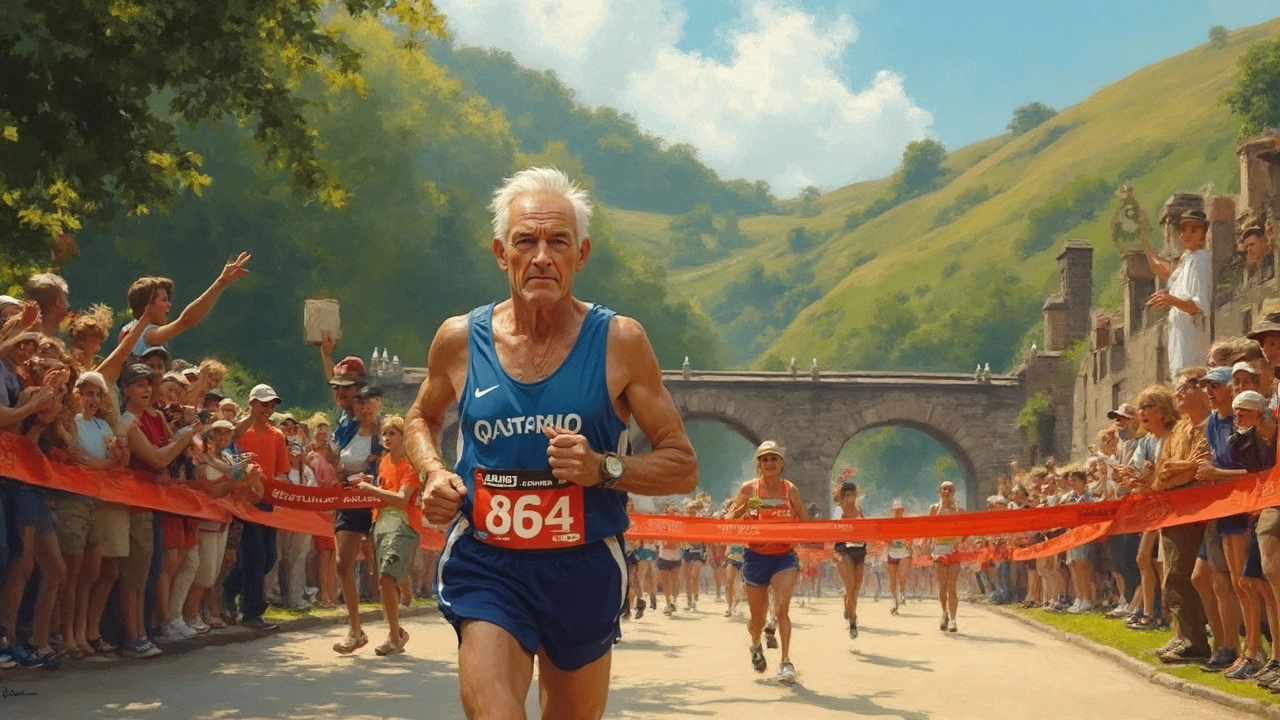What's the slowest marathon time ever recorded? You might be surprised to learn that it's not a few extra hours, but several decades! Shizo Kanakuri, a Japanese marathon runner, holds the record for the longest completed marathon—54 years. His marathon story isn't just about crossing the line; it’s a testament to his endurance and the unexpected twists life can throw at runners.
Imagine starting a marathon in 1912 and not finishing until 1966. Sounds wild, right? Kanakuri had to leave the race due to heat exhaustion and a kindly family took him in. He eventually returned to finish his run half a century later. Fascinating, isn't it?
But what does it really mean in terms of marathon performance and training? While Kanakuri’s story is unique, pace and completion time in marathons often tell tales of personal victories, not just numbers. Many marathoners focus on achieving personal bests or simply finishing, rather than clocking world-class speeds.
- Record-Breaking Slow Time
- Unusual Marathon Stories
- Understanding Pace and Performance
- Training Tips for Success
- Redefining Marathon Goals
Record-Breaking Slow Time
The story of Shizo Kanakuri is a one-of-a-kind marathon tale. Known today for having the slowest marathon time, Kanakuri's marathon journey began at the 1912 Stockholm Olympics. Facing intense summer heat, he collapsed partway through and was taken in by a local family, unable to complete the race that day.
Life had its plans for Kanakuri, and he was unable to return and finish for many years. However, in 1967, at the invitation of Swedish television, he made history by completing his marathon run, cutting the finishing tape with a time of 54 years, 8 months, 6 days, 5 hours, 32 minutes, and 20.379 seconds.
The experience was more than just about the marathon itself. This lengthy delay had given Kanakuri a unique place in the record books, and he became a symbol of persistence and resilience, proving that the spirit of completion matters more than the actual completion time.
While we cherish Kanakuri's story for its remarkable twists, it also reflects the marathon record in a different light. It reminds us that marathons aren't just about the fastest times; sometimes, they're about finishing despite unexpected roadblocks.
The Legacy of Kanakuri's Marathon
Amidst competitive drive, his story remains an inspiring example of dedication and perseverance. For any runner, understanding Kanakuri's experience can offer valuable lessons about patience and the personal significance of achieving one's own goals. After all, every marathoner knows the unpredictable nature of the sport.
Unusual Marathon Stories
Marathons are renowned for epic triumphs and incredible human stories. There are some stories that stand out, challenging our understanding of what a marathon experience can be. Some of the most inspiring involve unusual circumstances that highlight the grit and determination of these unique runners.
Shizo Kanakuri's Epic Journey
Of course, Shizo Kanakuri’s 54-year marathon saga is legendary. He didn’t let the passing of years stop him from completing the race that got interrupted in 1912 during the Stockholm Olympics. Heat exhaustion and the kindness of strangers led to an unexpected pause. The Swedes commemorated his eventual finish with great celebration, turning a seemingly lost cause into triumph over time.
A Run for the Ages: Fauja Singh
Fauja Singh, often dubbed the “Sikh Superman,” took up running late in life, exploding stereotypes about age. In 2011, at 100 years old, he became the oldest marathoner when he completed the Toronto Waterfront Marathon. His incredible achievement proves that it’s never too late to lace up those running shoes and hit the path.
Bob Wieland: A Different Kind of Determination
In 1986, Bob Wieland, a Vietnam War veteran who lost his legs, completed the New York City Marathon—but not on wheels. He “ran” the race using his arms, propelling himself forward. It took him nearly four days to finish. This wasn’t just about completing a marathon time; it was about showing the unstoppable human spirit.
Under the Sea: Lloyd Scott's Dive Suit Marathon
Lloyd Scott decided running on land wasn't quite challenging enough. In the 2002 London Marathon, he wore a full antique diving suit, taking five days to finish. His unique challenge was all for a good cause, increasing awareness and funds for sick children. Talk about taking one step at a time—albeit really heavy steps!
These unusual marathon stories prove that marathons are more than just a race against the clock. They're stories of courage, persistence, and people pushing beyond perceived limits regardless of the time on the clock.

Understanding Pace and Performance
When it comes to running marathons, your pace and performance go hand in hand. But what's the real deal with marathon pace? Many runners worry too much about their speed rather than focusing on the broader picture of finishing and personal achievement. Let's unpack what pace actually means for you.
What's a Good Pace?
Your ideal marathon pace all depends on your goal, be it running your first marathon or hitting a new personal record. A decent beginner’s pace might be anywhere between 5 to 6 hours for the full course, which breaks down to a 11 to 13-minute mile. More seasoned runners usually aim for sub-4 hours, clocking roughly 8 to 9-minute miles.
Pace vs. Performance
Here's the thing: pace doesn’t always equal performance. Sure, elite runners hit mind-boggling speeds, but personal performance largely revolves around running your best race. For many, that means knowing how to sustain your individual pace without burning out halfway through the course.
Factors Affecting Your Pace
- Training: Regular long runs and tempo runs can stabilize your pace.
- Nutrition: Eating right fuels endurance.
- Hydration: Stay hydrated to maintain energy levels.
- Course Conditions: Flat courses tend to be faster; hills slow you down.
- Weather: Ideal temperatures help you avoid exhaustion.
Why Pace Matters
Understanding your pace helps in setting realistic goals and pacing strategies. Overextending yourself too soon can lead to fatigue and underperformance. With the right training plan, you can find a sweet spot between maintaining a comfortable pace and pushing at key moments.
For those curious about numbers, check out this pace conversion below:
| Pace (min/mi) | Time for Marathon |
|---|---|
| 8:00 | 3:29:44 |
| 9:00 | 3:55:11 |
| 10:00 | 4:22:13 |
Remember, everyone’s pace and performance vary, and that's perfectly okay. Whether finishing in record time or just completing the course, it's your race, and that's what counts.
Training Tips for Success
Whether you're aiming for a personal best or simply trying to finish your first marathon, effective training is the key to success. Here are some tried-and-true tips to get you across that finish line, no matter what your pace might be.
1. Consistency is Key
The vital element of marathon training is staying consistent. Make a plan and stick with it, hitting those key workouts every week. This regularity builds a solid base, making your legs strong enough to handle the distance.
2. Tapering Before Race Day
Tapering is reducing your mileage leading up to the marathon. It's crucial to give your muscles time to rest and repair before the big day. Typically, taper for about two to three weeks before the race, reducing intensity while keeping your muscles active.
3. Cross-Training for Balance
Strengthen different muscle groups and avoid injury by including cross-training in your schedule. Activities like cycling, swimming, or yoga improve overall fitness without heavy strain on your running muscles. Balance and variety can really boost your marathon training.
4. Nutrition: Fueling Your Run
Eating the right foods ensures you have the energy to complete long runs. Focus on carbohydrates to fuel your workouts and proteins for recovery. Stay hydrated, and don't forget to experiment with different energy gels or bars during training to find what works best for you.
5. Listen to Your Body
Marathon prep isn't just about pushing your limits; it’s about knowing them, too. Pay attention to any signs of burnout or injury. Rest days are as crucial as training days in your journey.
| Weekly Running Mileage | Stage in Training |
|---|---|
| 10-20 miles | Beginner |
| 20-40 miles | Intermediate |
| 40+ miles | Advanced |
Remember, every step you take in training is an investment in race day success. Keep these tips in mind, and you're sure to cross the finish line with a smile.

Redefining Marathon Goals
Think marathon, and you might picture elite athletes sprinting to the finish line. But for most of us, marathons are far from just about speed. People’s reasons for running marathons are as varied as the courses themselves, and redefining what success means can lead to more fulfilling race experiences.
Personal Growth Over Finish Times
For many, running a marathon is about self-discovery and achieving something personally significant. The accomplishment of completing 42.195 kilometers, no matter the pace, is monumental. It’s about proving what we can do when we push ourselves and ignore doubts.
The Power of Community and Support
Another goal that many marathoners set is to be part of a global community. Marathons create opportunities to meet people from diverse backgrounds, all united by the love of running. Strong bonds form, and the encouragement from fellow runners can be more rewarding than any finish time.
Embracing the Journey
Training is another crucial part of the marathon experience and takes months of commitment. The journey teaches discipline, resilience, and planning. Success can mean sticking to a routine, learning to listen to your body, and appreciating the small victories during training.
Health and Wellbeing Benefits
Running a marathon can transform you, not just mentally, but physically. Many people take up marathoning to improve their overall health, lose weight, or manage stress. Participants often report feeling healthier and more energized after going through the rigorous training process.
As you set out on your marathon journey, remember it's not just about competing with others but achieving your own marathon goals. Whether it’s finishing with a smile, raising funds for charity, or just ticking that bucket list item, the slowest marathon and the fastest are ultimately two sides of the same coin.
